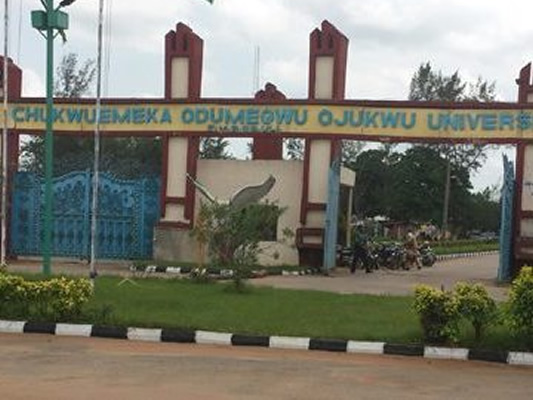The commitment of Chukwuemeka Odumegwu Ojukwu University (COOU) to combat gender-based violence, discrimination, and sexual harassment was notably reiterated during a recent collaboration with the non-governmental organization Alliances for Africa (AfA) and the university’s Centre for Gender Studies. The Deputy Vice-Chancellor, Prof. Mathias Ananti, represented Vice-Chancellor Prof. Kate Azuka Omenugha during this important engagement. Stressing the sensitivity of these issues, Ananti highlighted that they necessitate collaborative efforts for meaningful resolution. He pointed out that cultural silence, fear of stigmatization, and inadequate data significantly hinder efforts to eliminate gender-based violence within the university.
In his address, Ananti affirmed COOU’s zero tolerance for gender-based violence and sexual harassment, emphasizing the institution’s dedication to enhancing safety and support for all students. The establishment of a Centre for Gender Studies within COOU was proposed as a strategic step towards reinforcing policies and support systems. This commitment to institutional change signifies a proactive approach to safeguarding the academic atmosphere at COOU. He stated that the university is implementing student police initiatives aimed at curbing these issues, illustrating a multifaceted approach to tackling the problem.
Blessing Duru, the Programmes Director at AfA, articulated the persistent nature of these issues in Nigerian tertiary institutions, including COOU, despite existing policies. This advocacy visit aimed to foster collaboration with Centres for Gender Studies across twelve universities in Nigeria to address gender-based discrimination and harassment effectively. Duru emphasized that COOU had yet to fully institutionalize its Centre for Gender Studies, which is crucial for combatting sexual harassment and violence; she noted that the absence of such a center would hinder the university’s efforts in addressing these significant problems.
Duru further cited the existence of a culture of silence and victim-blaming in many institutions as a major barrier to eradicating sexual harassment. She pointed out the lack of clear reporting structures, accountability mechanisms, and protective measures for victims as factors contributing to the perpetuation of these issues. Her call to action for COOU’s management included establishing definite reporting channels and ensuring immediate, transparent investigations into allegations, thereby ensuring substantial consequences for perpetrators.
To demonstrate their commitment to addressing gender discrimination and sexual harassment, Duru emphasized that COOU’s management must formally establish and institutionalize the Centre for Gender Studies. This foundational move would serve as a precursor to implementing various supportive measures offered by AfA to eleven other partner universities in the project. The AfA’s commitment includes enhancing counseling services, raising awareness, and developing resources while establishing a committee to monitor the implementation of sexual harassment policies at COOU continuously.
By adopting the necessary measures, Duru posited that COOU could foster a safer environment for its students and staff. Additionally, positioning itself as a pioneering institution in the fight against gender-based violence could significantly enhance the university’s reputation, potentially attracting more students and funding from organizations that prioritize ethical and inclusive educational frameworks. This multifaceted approach to dealing with issues of gender-based violence and sexual harassment not only benefits COOU’s immediate community but also sets a precedent for other educational institutions in Nigeria to follow. The collaborative efforts of government, educational institutions, and organizations like AfA are vital in nurturing a climate where all students can thrive free from fear and discrimination.


